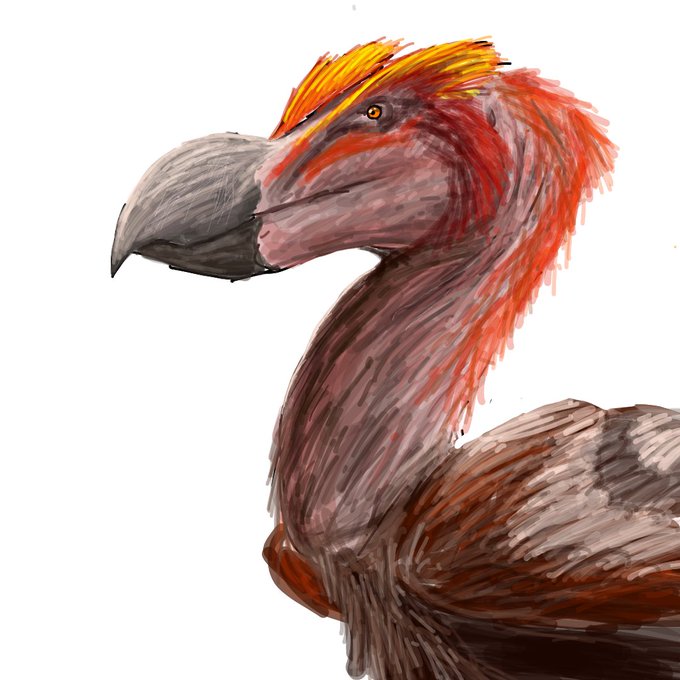spectemberのTwitterイラスト検索結果。 94 件中 5ページ目
#spectember day 12: today’s #missingmesozoiclife is a saltasaur adapted to live like an ankylosaur, even more heavily armored than related sauropods. Pictured here with a very confused abelisaur
Inspired by @MetTiinA's #Spectember reimagining of Dixon's Vortex, I tried my skills at imagining a large filter-feeding seabird. Have Balaenomergus macropus, a speculative highly specializes Anseriform
i had no idea #Spectember was a thing?? mine are a little less scientific/more whimsical than most of the other ones in this tag but i still like making creatures that feel like they could possibly exist :D
#Spectember day 7: today’s #missingmesozoiclife is a pair of abelisaurs engaged in bloody combat with their ridiculously thick (thicc) tails. Carnotaurus had a very thick tail, and these abelisaurs have taken it to the logical extreme, fighting like giraffes do with their necks.
Come on down to #Spectember !
(Images from 'After Man' and 'Man After Man' by Dougal Dixon)
First #Spectember redraw is the ahuizotl!
Imagined here as an amphibious marsupial with fingerlike graspers at the end of its tail. It may have helped arboreal ancestors hang from trees, now it lures and smothers small prey. Or human prey, if you ask your local Aztec fisherman.
Given that #Smaugust is now over, here’s all the dragony goodness while I wait out #Spectember for #Inktober
Another one for #Spectember , the unicorn. The unicorn "horn" is actually a tusk, similar to a narwhal or elephant. Being grazers, these animals adapted a prehensile trunk to pick grass as the tusk prevents normal grazing.
For #Spectember I submit to you, the carnivorous horse, or "loper." To call them horses is a misnomer, these large predators are actually most closely related to hyenas and only resemble horses superficially. They are one of 3 remaining species in the genus hippomorphus.
Using this as chance to plug the atypical designs I have prepared for #spectember #missingmesozoiclife https://t.co/egWTuTDwKf
Day three of #Spectember! Today’s #missingmesozoiclife are a pair of ALPINE Scutellosaurs. The large, big horn sheep like horns are based off of the smaller horns discovered on Scutellosaurus. The thick coat of feathers keeping them warm also obscured most of the scutes!
#Spectember well.. This my second entry, and it is about an odd raven Descendent of ravens in my #specevo project.
1st day of #spectember prompt is opposites attract @SpectrumNoir




































